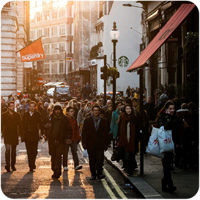Het arrangement 5.2 Buying presents - tto123 is gemaakt met Wikiwijs van Kennisnet. Wikiwijs is hét onderwijsplatform waar je leermiddelen zoekt, maakt en deelt.
- Auteur
- Laatst gewijzigd
- 11-05-2025 18:05:17
- Licentie
-
Dit lesmateriaal is gepubliceerd onder de Creative Commons Naamsvermelding-GelijkDelen 4.0 Internationale licentie. Dit houdt in dat je onder de voorwaarde van naamsvermelding en publicatie onder dezelfde licentie vrij bent om:
- het werk te delen - te kopiëren, te verspreiden en door te geven via elk medium of bestandsformaat
- het werk te bewerken - te remixen, te veranderen en afgeleide werken te maken
- voor alle doeleinden, inclusief commerciële doeleinden.
Meer informatie over de CC Naamsvermelding-GelijkDelen 4.0 Internationale licentie.
Aanvullende informatie over dit lesmateriaal
Van dit lesmateriaal is de volgende aanvullende informatie beschikbaar:
- Toelichting
- Deze les valt onder de arrangeerbare leerlijn van de Stercollecties voor Engels voor tweetalig onderwijs, leerjaar 1, 2 en 3. Dit is thema 5 'Shopping'. Het onderwerp van deze les is: Buying presents. In deze les staat het kopen van cadeaus centraal. Daarbij worden ook openingstijden van winkels besproken. In de grammaticaopdracht worden de woorden 'much' en 'many' besproken.
- Leerniveau
- VWO 2; HAVO 1; VWO 1; HAVO 3; VWO 3; HAVO 2;
- Leerinhoud en doelen
- Engels;
- Eindgebruiker
- leerling/student
- Moeilijkheidsgraad
- gemiddeld
- Studiebelasting
- 1 uur 40 minuten
- Trefwoorden
- 'much' en 'many, arrangeerbaar, buying presents, cadeaus kopen, engels, openingstijden, stercollectie, tto123
Gebruikte Wikiwijs Arrangementen
VO-content Engels. (2020).
1.2 Preferences - tto123
VO-content Engels. (2023).
5.2 Buying presents - hv12

 The subject of this double period is buying presents.
The subject of this double period is buying presents.

 Gifts!
Gifts!
 Are most shops open on weekends?
Are most shops open on weekends? To be able to do all the assignments correctly, you need to know some words and sentences.
To be able to do all the assignments correctly, you need to know some words and sentences.
 Study the second part from `Some, any, much and many.
Study the second part from `Some, any, much and many.
 Are most shops open on weekends?
Are most shops open on weekends? An essay about opening times
An essay about opening times What have you learned in this period?
What have you learned in this period?
